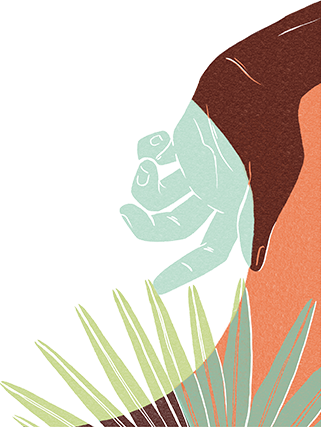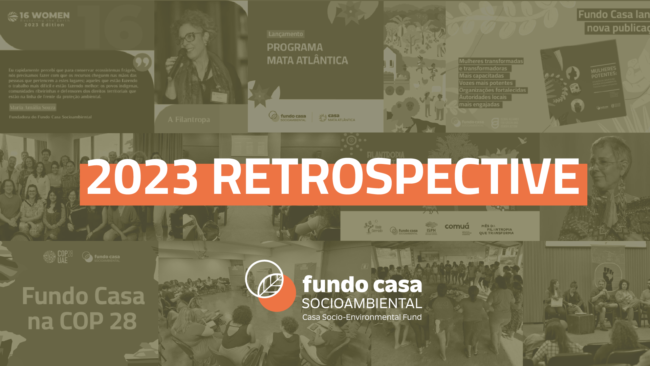 27.12.2023
27.12.2023
Casa Fund 2023 Retrospective
2023 was intense! It was a year of hard work but also of many achievements and important recognitions for Casa Fund. From January to December, we launched 10 project calls, totaling more than U$2.6 million donated directly to communities and grassroots movements in Brazil. These communities have shown us, in practice, the challenges and solutions for promoting climate and socio-environmental justice in our country.
Among the main themes supported by Casa Fund in 2023 are: Climate and gender justice; Strengthening territorial rights; Conservation and revitalization of the Atlantic Forest; Equity in indigenous education; Strengthening the autonomy of forest peoples; Community strengthening in Matopiba; Support for voluntary, community, and indigenous brigades in combating forest fires.
We thank all the funders, partners, and the Casa Fund team who, together, made it possible to fulfill our mission: to provide the right resources in a systemic way to grassroots organizations and movements.
Check out below a brief retrospective of some of the most important moments for Casa Fund in 2023:
In February, we premiered the video Strengthening Indigenous Territorial Rights in the Brazilian Amazon, featuring testimonials from representatives of supported projects and communities about the importance of their territorial defense work and how Casa Fund’s support contributed to it. These projects were supported between 2020 and 2022, with funding from the Gordon and Betty Moore Foundation. Approximately $1 million was donated directly to 57 organizations in 46 Indigenous Lands in the Brazilian Amazon. Watch it here (Click on CC to enable English subtitles):
Still in February, we had a special article about the Challenges for a Just Energy Transition in the Northeast. Energy transition is urgent and necessary; humanity needs to decrease its dependence on fossil energy sources and shift to other sources that emit fewer greenhouse gases. However, the urgency of the climate emergency cannot justify the disregard for the rights of local and traditional communities. Read the full article here.
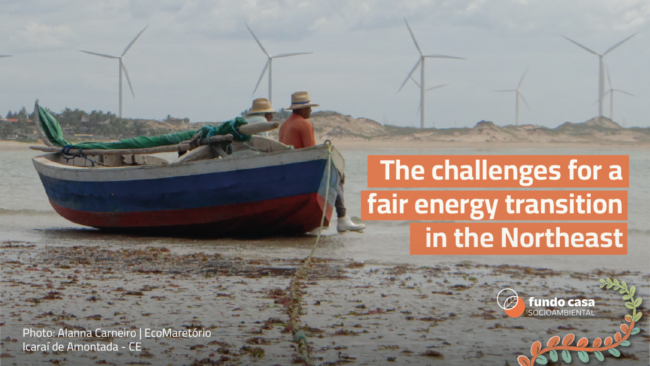
In March, Casa Socio-Environmental Fund, together with partners, hosted a coordination meeting to protect human rights defenders. Organized by Casa Socio-Environmental Fund, Brazil Human Rights Fund, and the Urgent Action Fund for Latin America and the Caribbean (FAU-AL), the initiative aimed to strengthen coordination among participating organizations, enhancing cooperation between funders and groups involved in protecting and promoting human rights. Activities included research and documentation, litigation and advocacy, communication, training, and direct support for defenders. Click to read the full article.
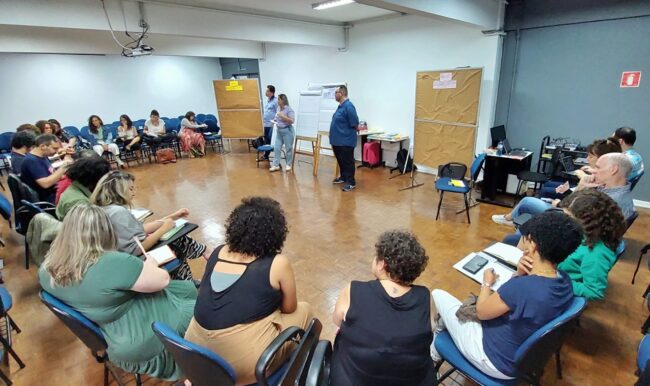
Also in March, Maria Amália Souza, founder of Casa Socio-Environmental Fund, received international recognition for her global environmental protection work. Amália was the only Brazilian among the 16 recipients awarded by the institution in this year’s edition of “16 Women Restoring the Earth.” The awarding body, the “Global Landscapes Forum,” is the largest global platform for integrated land use, dedicated to achieving the Sustainable Development Goals and the Paris Climate Agreement. The institution is led by the Center for International Forestry Research (CIFOR), in collaboration with the UN Environment Programme (UNEP), the World Bank, and Charter Members (UN). Read the full article.
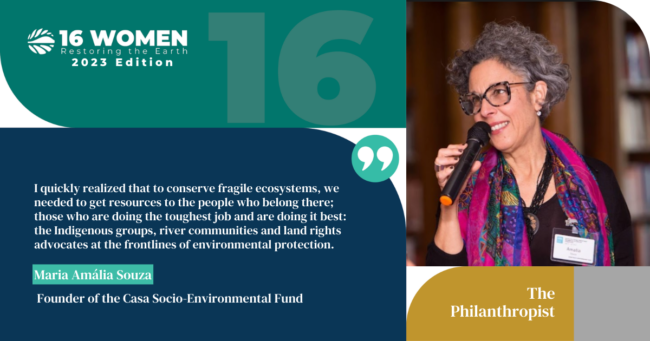
Still in March, we launched the publication “Mighty Women Action By Groups In The Socio-Environmental Agenda – Transformations And Impacts“. The publication showcases transformations and impacts resulting from the action of groups led by women in South America, through data analysis obtained from 117 projects supported by Casa Socio-Environmental Fund in partnership with the GAGGA Alliance in four countries – Argentina, Bolivia, Brazil, and Paraguay – between 2016 and 2020. The assessment demonstrates the transformative potential within communities through the empowerment of women. The publication is available in three languages: Portuguese, Spanish, and English. Click here to access the publication.
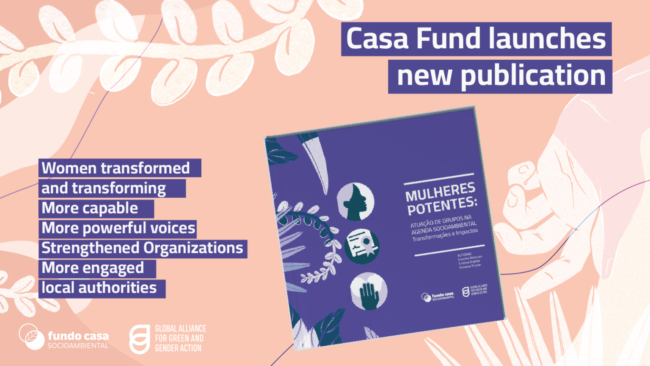
In May 2023, the Casa Socio-Environmental Fund launched the Atlantic Forest Program to support organizations working on the preservation and restoration of the biome. Its launch included the opening of the first project call: “Empowering Communities for Conservation and Revitalization of the Atlantic Forest and Climate Resilience,” allocating R$1.8 million for initiatives in the Atlantic Forest region of Brazil. The resources for this call were donated by philanthropist MacKenzie Scott, who awarded grants to 16 Brazilian organizations in 2022, including Casa Fund. The call begins to receive projects starting on May 27, the National Atlantic Forest Day. Learn more about the Atlantic Forest Program.
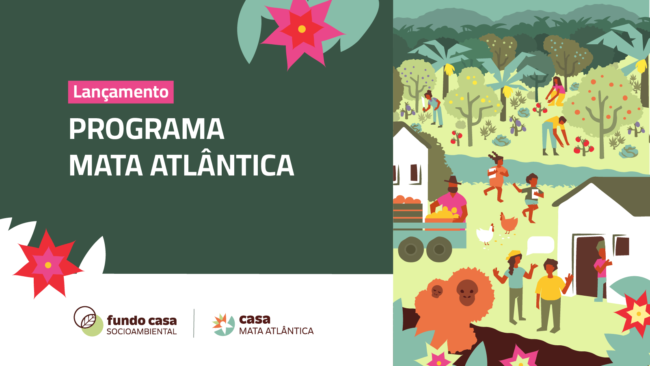
In June, organizations from the GAGGA-LAC Alliance gathered in Rio de Janeiro to explore gender-just climate solutions. The meeting, titled “Strengthening the capacities and engagement of Latin American partners of GAGGA in climate finance and the Green Climate Fund (GCF),” was organized by Both ENDS, Casa Socio-Environmental Fund, and the Inter-American Association for Environmental Defense (AIDA). The event aimed to provide participants with a better understanding of the GCF context and climate finance in Latin American countries, strengthening the regional climate finance network in the area and enabling more effective monitoring of GCF activities. Click here to read more about the meeting.
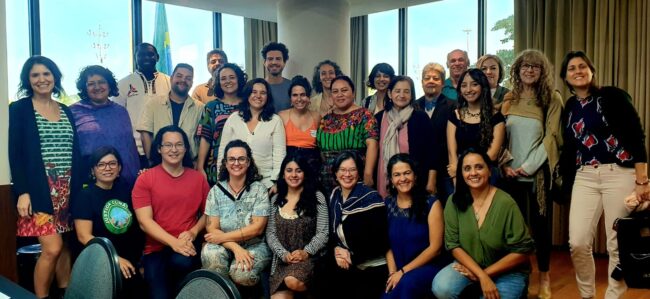
Also in June, Casa Fund and partners participated in the National Meeting of the Brazilian Committee Network of Human Rights Defenders in Brasília. Within this gathering, there was a panel discussion involving funds and organizations that provide financial resources and capacity strengthening for individuals and human rights organizations. Present at the panel were Casa Socio-Environmental Fund, Brazil Human Rights Fund, Fondo de Acción Urgente de América Latina y el Caribe (FAU), FrontLine Defenders, Seeds of Protection Project, Defending Lives Project (from the National Human Rights Movement), National Network for the Protection of Journalists, and the CBDDH itself. Learn more about the meeting.
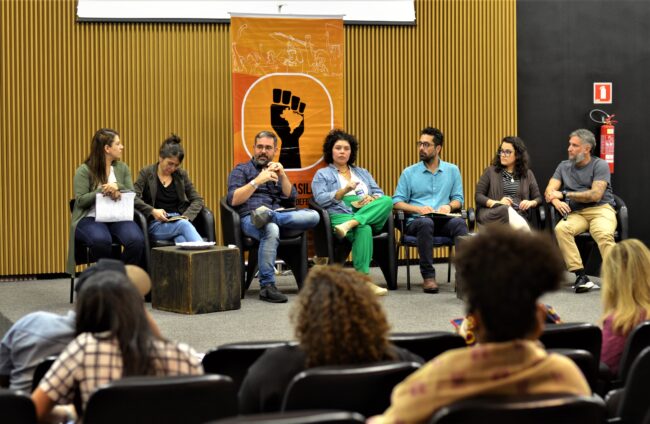
In July, Maria Amália Souza, founder and Director of Strategic Development at Casa Socio-Environmental Fund, was chosen in 2023 to receive the J. Blanton Belk Award for Exceptional Alumni, the highest honor presented by the International Association of Up With People Alumni (UWPIAA). The award is dedicated to alumni who have made an exceptional contribution to humanity. Up with People was founded in 1965 by J. Blanton Belk to provide young adults with a unique experience of interacting with the world through positivity and music. Over 22,000 young people went through this experience, which involved a year of traveling the world with an international musical show and community service experiences. Amália, at 20 years old, visited 5 countries and was hosted by over 70 families in locations where the group performed the show and visited local institutions. Click here to learn more.
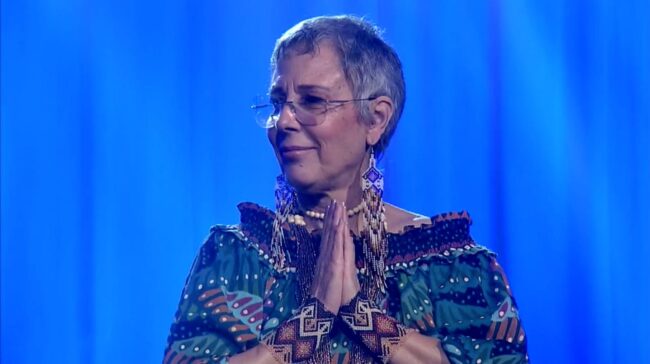
In August, the Casa Fund team participated in a project development workshop at Açaizal Village, in the Munduruku Indigenous Land of Planalto Santareno. The initiative was spearheaded by the “Agro é Fogo” Articulation and partnered with the Casa Socio-Environmental Fund, the Maparajuba collective for popular advocacy, the Pastoral Land Commission (CPT) of Planalto Santareno, and the Munduruku Indigenous Council of Planalto Santareno. Over 50 indigenous leaders from Tupinambá, Apiaká, Munduruku, Tapajó, Jaraki, and Arapiun peoples, from various villages in the region, attended the workshop. The event notably saw significant participation and leadership from the female attendees. Click here to learn more.
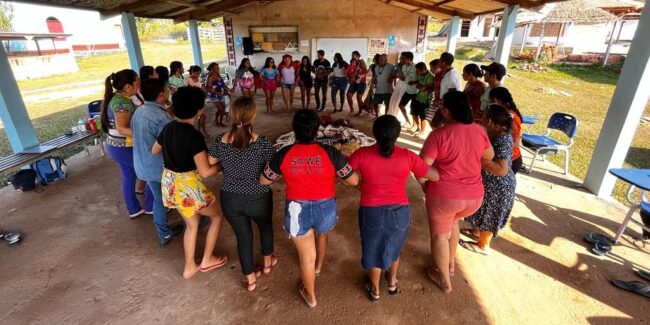 Understanding that communication is increasingly a strategic tool in defending rights and in producing and disseminating information that ensures visibility to causes and voices, the Casa Socio-Environmental Fund, in partnership with the Comuá Network, Brazil Human Rights Fund, the Pastoral Land Commission, and Tapajós de Fato, hosted the event “Conversation Circles: Communication, Human Rights, and Climate Justice” in August. The event, which comprised four thematic discussions over two days, brought together 98 communicators working with socio-environmental rights in the Legal Amazon and Matopiba regions (an area predominantly composed of Cerrado, covering the regions of Maranhão, Tocantins, Piauí, and Bahia). Click here to learn more.
Understanding that communication is increasingly a strategic tool in defending rights and in producing and disseminating information that ensures visibility to causes and voices, the Casa Socio-Environmental Fund, in partnership with the Comuá Network, Brazil Human Rights Fund, the Pastoral Land Commission, and Tapajós de Fato, hosted the event “Conversation Circles: Communication, Human Rights, and Climate Justice” in August. The event, which comprised four thematic discussions over two days, brought together 98 communicators working with socio-environmental rights in the Legal Amazon and Matopiba regions (an area predominantly composed of Cerrado, covering the regions of Maranhão, Tocantins, Piauí, and Bahia). Click here to learn more.
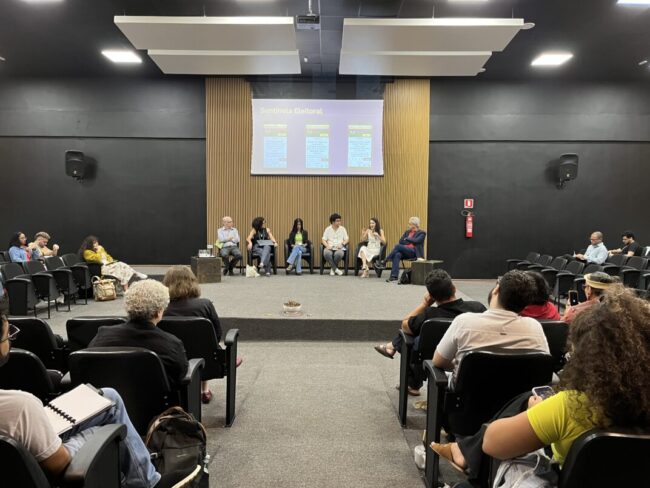
With the aim of discussing and showcasing practical examples of philanthropy for socio-environmental justice in the context of Cerrado preservation, the Comuá Network, the Institute of Society, Population and Nature (ISPN), the Casa Socio-Environmental Fund, and the Cerrado Network hosted the event “Dialogue on the Importance of Community Philanthropy in Cerrado Conservation and the Culture of its People” on September 15th, during the X Meeting and Fair of the Cerrado Peoples in Brasília. The Cerrado has become the most threatened biome in Brazil, experiencing record-breaking deforestation in 2023. As the birthplace of waters, it feeds eight of the country’s main hydrographic basins. It harbors 5% of the planet’s biodiversity and is home to indigenous peoples and traditional communities that find sustenance and cultivate their culture within it. Watch the video created from these discussions below (Click on CC to enable English subtitles):
To close this retrospective, we highlight the Casa Socio-Environmental Fund’s participation in COP 28, the 28th edition of the Conference of the Parties to the United Nations Framework Convention on Climate Change held in Dubai, United Arab Emirates, from November 30th to December 12th. With a delegation of 17 people, the Casa Fund organized and engaged in discussions on topics such as climate financing, rights, and the leadership of traditional peoples.
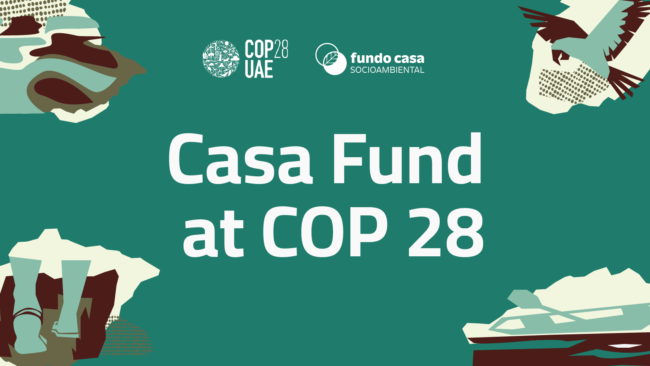
The Casa Fund’s delegation at COP 28 comprised team members and leaders from supported groups representing their communities: riverside and forest dwellers, indigenous peoples, and quilombolas. These communities demonstrate in practice that it’s possible to coexist with biomes without destroying them, yet they are among the populations most vulnerable to the impacts of extreme climatic events.
Coverage of the Casa Fund’s participation in COP 28 can be accessed on our Instagram. Click here to access it.
The Casa Fund team wishes you a happy 2024!
